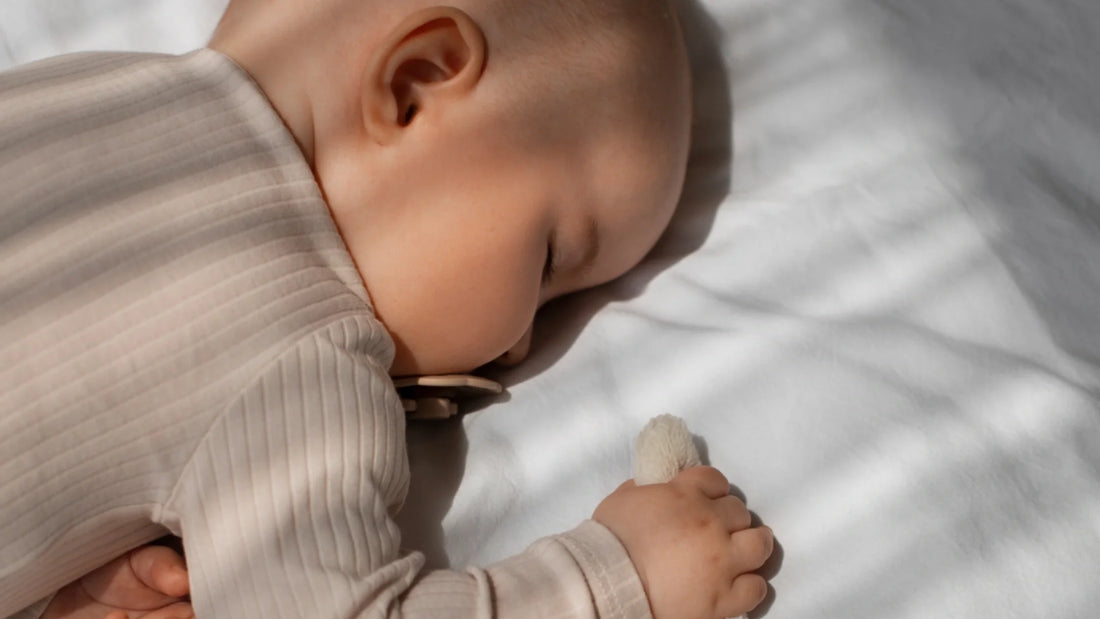Melatonin for newborns: what is it for and when should it be given?
What is Melatonin?
Melatonin is a hormone naturally produced by the pineal gland in the brain and is responsible for regulating the sleep-wake cycle . Its production is influenced by light, with levels increasing in darkness to promote sleep.
According to studies conducted by the National Sleep Foundation , melatonin is essential for establishing and maintaining a healthy sleep-wake cycle in newborns and it is therefore important to ensure proper sleep hygiene to avoid negatively affecting its production.

What are the factors that influence its production?
Here are some of the main factors that influence melatonin production :
- Light Exposure : Melatonin is commonly known as the sleep hormone, and is produced in response to darkness. When you are in dark or low-light environments, the pineal gland in your brain begins to secrete melatonin to prepare your body for sleep.
- Circadian rhythm : The 24-hour biological cycle that regulates physiological processes in the human body, including sleep and wakefulness. Melatonin production follows this rhythm, peaking at night and declining during daylight hours.
- Exposure to blue light : Blue light, especially from electronic devices, can negatively affect the production of melatonin. In fact, exposure to this light in the late evening can delay the secretion of melatonin and disturb sleep onset and sleep.
- Age : Melatonin production can vary with age.
- Health Conditions: Some medical conditions can affect your production, such as sleep disorders, depression, and other mental health issues.
- Medication intake : Some medications can increase or decrease melatonin levels in the body.
- Natural light exposure : Natural sunlight during the day is important for maintaining a healthy circadian rhythm. Exposure to sunlight in the morning can help regulate melatonin production and contribute to a more regular night's sleep.
When is melatonin used in newborns?
The use of melatonin in newborns is a delicate subject and requires attention and advice from health professionals, especially the child's pediatrician . In fact, the administration of melatonin is recommended only in specific situations and under strict medical supervision.
It is not usually used for healthy newborns who have sleep problems because sleep difficulties up to 3 years are physiological or often due to an unkempt bedtime routine . For example, it is precisely in the first years of a child's life that "sleepless nights" can be due to sleep regressions or growth spurts.
Knowing the physiology of sleep can help many parents to be more aware and face these periods, although difficult, more serenely without resorting to the use of melatonin for newborns .
The pediatric use of melatonin is used for the treatment of sleep disorders in children with neuropsychiatric problems (autism spectrum disorders, attention deficit and hyperactivity) or in case of neurological diseases . It is used in healthy children only when sleep-related problems have not been resolved by improving sleep hygiene and the sleep routine, always under the pediatrician's advice.

